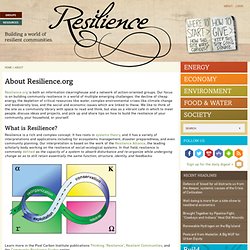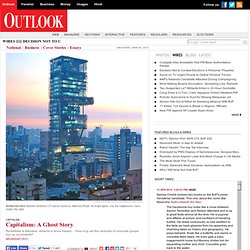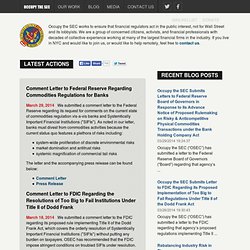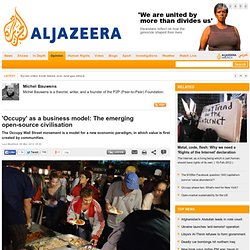

About. Resilience.org is both an information clearinghouse and a network of action-oriented groups.

Our focus is on building community resilience in a world of multiple emerging challenges: the decline of cheap energy, the depletion of critical resources like water, complex environmental crises like climate change and biodiversity loss, and the social and economic issues which are linked to these. We like to think of the site as a community library with space to read and think, but also as a vibrant café in which to meet people, discuss ideas and projects, and pick up and share tips on how to build the resilience of your community, your household, or yourself.
What is Resilience? Resilience is a rich and complex concept. It has roots in systems theory, and it has a variety of interpretations and applications including for ecosystems management, disaster preparedness, and even community planning. What information can you find here? News Groups Resources Who are we? Post Carbon Institute Contact Us. Global Uprisings — Global Uprisings is an independent news site and video series dedicated to showing responses to the economic crisis from around the world. Capitalism: A Ghost Story. Is it a house or a home?

A temple to the new India, or a warehouse for its ghosts? Ever since Antilla arrived on Altamont Road in Mumbai, exuding mystery and quiet menace, things have not been the same. “Here we are,” the friend who took me there said, “Pay your respects to our new Ruler.” Antilla belongs to India’s richest man, Mukesh Ambani. I had read about this most expensive dwelling ever built, the twenty-seven floors, three helipads, nine lifts, hanging gardens, ballrooms, weather rooms, gymnasiums, six floors of parking, and the six hundred servants. But Gush-Up certainly has. The word on the street (and in the New York Times) is, or at least was, that after all that effort and gardening, the Ambanis don’t live in Antilla. Mukesh Ambani is personally worth $20 billion. RIL is one of a handful of corporations that run India.
BitShares Forum - Index. Eagainst.com. Occupy the SEC. March 29, 2014We submitted a comment letter to the Federal Reserve regarding its request for comments on the current state of commodities regulation vis-a-vis banks and Systemtically Important Financial Institutions ("SIFIs").

As noted in our letter, banks must divest from commodities activities because the current status quo features a plethora of risks including: system-wide proliferation of discrete environmental risksmarket domination and antitrust riskssystemic magnification of commercial tail risks The letter and the accompanying press release can be found below: March 18, 2014We submitted a comment letter to the FDIC regarding its proposed rule implementing Title II of the Dodd Frank Act, which covers the orderly resolution of Systemtically Important Financial Institutions ("SIFIs") without putting any burden on taxpayers. OSEC has recommended that the FDIC impose stringent conditions on troubled SIFIs under resolution. July 28, 2013In October 2013, the U.S. Issues Read more here. So what the fuck has occupy done so far? RoarMagazine:Reflections on a Revolution. OccupyArrests.com. 'Occupy' as a business model: The emerging open-source civilisation.
Chiang Mai, Thailand - Last week I discussed the value crisis of contemporary capitalism: the broken feedback loop between the productive publics who create exponentially increasing use value, and those who capture this value through social media - but do not return these income streams to the value "produsers".

In other words, the current so-called "knowledge economy" is a sham and a pipe dream - because abundant goods do not fare well in a market economy. For the sake of the world's workers, who live in an increasingly precarious situation, is there a way out of this conundrum? Can we restore the broken feedback loop? Strangely enough, the answer may be found in the recent political movement that is Occupy, because along with "peer producing their political commons", they also exemplified new business and value practices.
These practices were, in fact, remarkably similar to the institutional ecology that is already practiced in producing free software and open hardware communities.